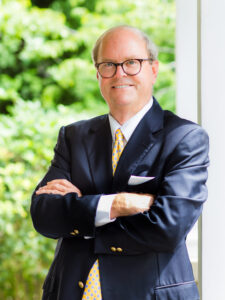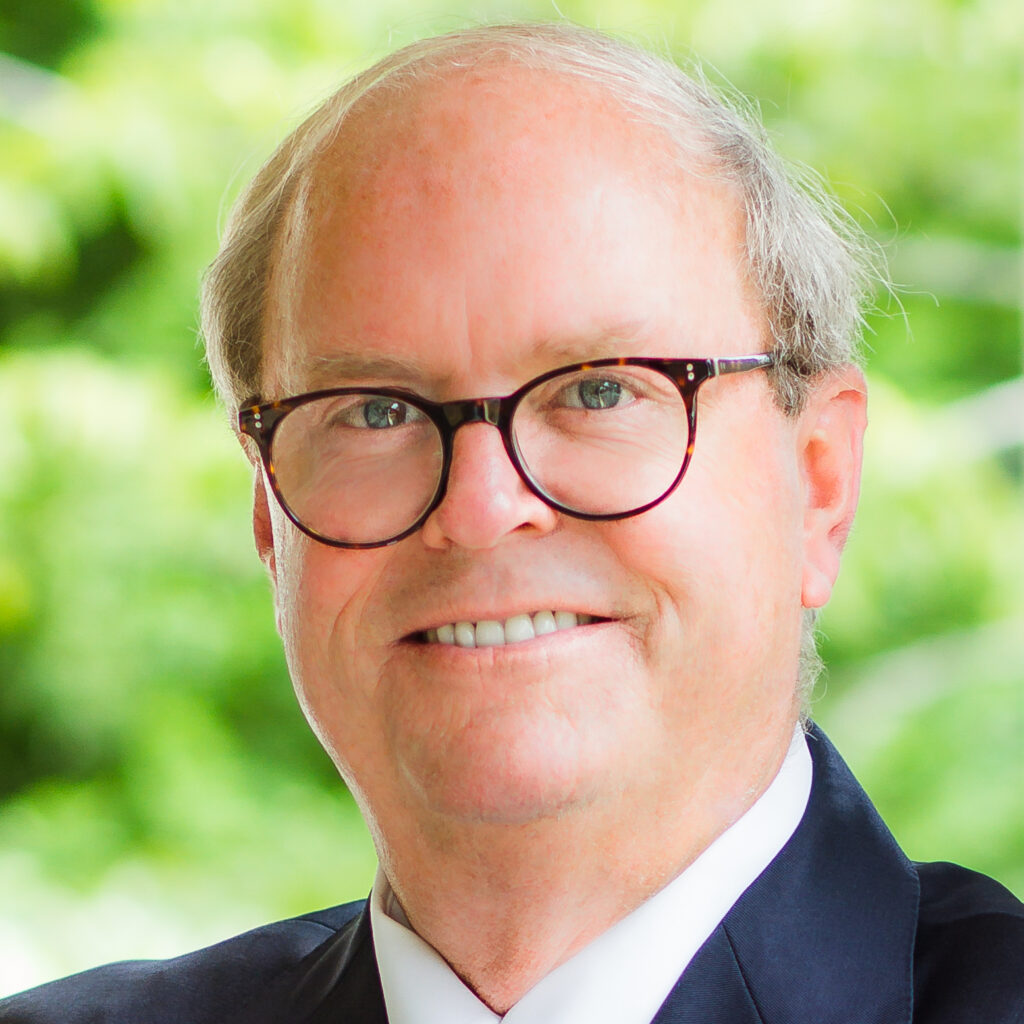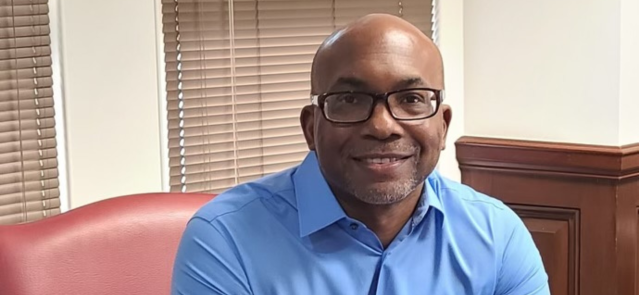Stay ahead of the curve as a political insider with deep policy analysis, daily briefings and policy-shaping tools.
Request a DemoMonty Veazey discusses raising awareness on rural health care


In the 40 years Monty Veazey has been with the Georgia Alliance of Community Hospitals, the veteran lobbyist has watched a wide swath of rural Georgia counties shrink in population and wither economically.
Those who remain in rural Georgia are often poor, older, disabled and without reliable transportation or health insurance. They often live in communities where the struggling hospital’s emergency room is the first place people turn to for health issues that might normally be handled by a primary care physician.
Many rural residents don’t even have that type of access.
Georgia has 53 counties with no hospital, eight of which have closed in the last decade.
“When a rural hospital closes, it’s devastating to that community,” Veazey, a former state representative, told State Affairs. “They don’t have local access to health care. Other things close, such as the local pharmacy. There have been cases where a local bank has closed because these [hospital jobs] were good-paying jobs and they touch many families in that community. One health care job extends to eight families in that community. So it’s quite devastating to a community of 15,000 people.”
As a child, Veazey remembers his parents driving over an hour from his hometown of Tifton to neighboring Dougherty County to see his pediatrician. Many rural Georgians are still making those kinds of trips. These days, getting to the doctor takes longer as more counties need physicians, especially specialists like pediatricians and OB-GYN practitioners.

The veteran lobbyist spoke with State Affairs about the challenges of access to health care in rural Georgia. The conversation has been edited for clarity and length.
Q. Do you believe there are two Georgias when it comes to health care?
A.
I do. You have the metro area and then you have the remainder of Georgia. It’s not only South Georgia but North Georgia, too. You don’t have the number of paying patients in rural Georgia. You have an aging population. You have a high Medicaid rate. And you have more diseases such as obesity and diabetes and smoking. So there’s a high-risk patient outside of the wealthy zip codes.
Q. Setting aside your lobbying duties, what are you most concerned about as a person who lives in rural Georgia regarding health care?
A. Making sure everybody gets seen by a doctor or specialist whether they can pay or not.
Q. Is that a problem in your community?
A. Not in my community. But if you leave my community and drive anywhere around it within 25 miles, it is a problem. And the problem lies in access to specialists. OB-GYNs, orthopedics, cardiologists. All of those are lacking in South Georgia.
Q. Give me a roundup of what it’s like for doctors practicing in rural Georgia and what it is like for patients.
A. Well, it’s very, very difficult to get a physician to practice in rural areas and it’s very hard to get health care workers, such as nurses, licensed practical nurses and others. It’s very difficult to recruit to rural Georgia.
Q. What bills did you push for this past legislative session? What did you push against?
A. We monitored over 60 bills that impacted health care. We did not push any particular bill. There was a lot of talk around Certificate of Need (CON). We wanted to make sure that if there’s a change in Certificate of Need that it’s done fairly and balanced and is good for the state.
We did have problems with a couple of the [CON bills] that were introduced. We tried to work them out. In the end, they failed to pass.
Q. Have state lawmakers done enough to help rural Georgia?
A. I think the state has done all it can do. They [lawmakers] have been prepared. They’ve addressed the issue, especially Governor Kemp. When we had COVID, and we were in a crisis, he sent nurses to hospitals. He sent payments to hospitals that were in trouble. He recognized it. And he has funded broadband access, which only helps telehealth. They are helping to the extent they can to keep rural hospital doors open.
Q. You believe strongly in the need for the Certificate of Need program, which has been very controversial. Explain why you feel it’s important.
A. It has quality control rules and regulations. It protects a rural hospital from an ambulatory surgery center coming in and building next to it and drawing the paying patient out of the hospital into that ambulatory environment. That just kills a rural hospital.
Q. Are many of the doctors in rural areas contract doctors?
A. Some of them are. You might have a Phoebe Putney regional hospital that contracts with a physician in a rural county as part of their network of physicians.
Q. What is the makeup of the doctors? Are many of them coming from overseas?
A. Yeah, you have that in cases but most of it is your average American practicing physicians who are doing primary care. It’s most difficult to get a specialist to a rural area.
Q. You’ve seen a lot of change in rural Georgia regarding health care. In your estimation, is it getting better or worse?
A. I hate to say it but I don’t see a lot of improvement because of the rapid growth in the aging population and disabled. I think telehealth has a promising future but it’s not totally there yet. Governor Kemp has done a good job in funding it. I think once everything is up online with broadband, we can expand the number of diagnostic [procedures]. We have to get the federal government to reimburse physicians and providers for providing their service, and insurance companies. We’ve got a ways to go but we’re making progress.

THE MONTY MOBLEY VEAZEY FILES
Title: President, CEO and co-founder of the Georgia Alliance of Community Hospitals
Age: 69
Residence: Tifton
Education: Attended Abraham Baldwin Agricultural College; graduated from Georgia Southwestern State University with a degree in business finance in 1976.
Career: Member of the Georgia House of Representatives, 1977-1983. He helped found the Georgia Alliance of Community Hospitals in 1983.
Hobbies: Raising 30 Tennessee Walking horses, a breed of gaited horse known for its fancy stepping, on his farm.
Accomplishments: In 1976, Veazey became the youngest member ever elected to the Georgia House of Representatives at age 22.
Family: Married to Patty, an attorney; they have three children and three grandchildren.
What job would you want to be doing other than your current one: “I’d probably be practicing accounting.”
Have questions, comments or tips? Contact Tammy Joyner on Twitter @lvjoyner or at [email protected].
Twitter @StateAffairsGA
Facebook @stateaffairsUS
Instagram@stateaffairsGA
LinkedIn @stateaffairs
Read more about the health care challenges facing the many Georgians who live in rural communities.
Newly minted Senate Minority Leader Harold Jones II: ‘I’m not the typical back-slapping politician’
Nearly 10 years into legislative life, Sen. Harold Jones II wouldn’t change anything about the experience. “I love every minute of it. Even when I hate it, I love it,” the 55-year-old Augusta Democrat told State Affairs. Come January, Jones will add another role to his legislative duties: Senate minority leader, a job held for …
Gov. Kemp calls on state agencies to be fiscally restrained amid record $16.5B surplus
The Gist Gov. Brian Kemp asked the state’s 51 government agencies for continued fiscal restraint when drafting their amended fiscal year 2025 and 2026 budgets. Most agencies adhered to his request even as the state’s general fund surplus hit a record $16.5 billion last month. Forty-five agencies, excluding state courts, followed the governor’s instructions to …
Georgia defies bomb threats as election chief declares a “free, fair and fast” vote amid record turnout
ATLANTA – Despite dealing with over 60 bomb threats, Georgia’s election chief said Tuesday the state’s general election went smoothly. Georgia had a record turnout with nearly 5.3 million people voting, Secretary of State Brad Raffensperger told reporters. Election officials in the state’s 159 counties have until 5 p.m. to certify votes. “We had a …
In the (state)house: Meet the newest members of the Georgia legislature
When lawmakers reconvene at the state Capitol on Jan. 13, there’ll be a cadre of new faces in the 236-member Georgia General Assembly, one of the nation’s largest state legislatures. All 236 statehouse seats were up for election this year. Most candidates ran unopposed. Incumbents in contested races easily kept their seats, with the exception …




